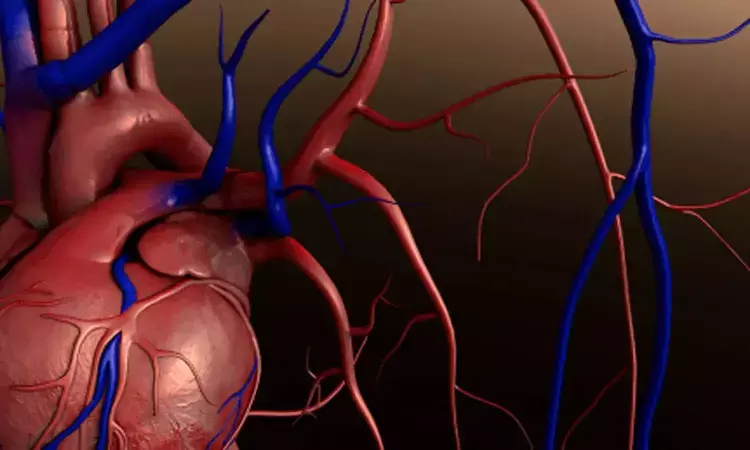- Home
- Medical news & Guidelines
- Anesthesiology
- Cardiology and CTVS
- Critical Care
- Dentistry
- Dermatology
- Diabetes and Endocrinology
- ENT
- Gastroenterology
- Medicine
- Nephrology
- Neurology
- Obstretics-Gynaecology
- Oncology
- Ophthalmology
- Orthopaedics
- Pediatrics-Neonatology
- Psychiatry
- Pulmonology
- Radiology
- Surgery
- Urology
- Laboratory Medicine
- Diet
- Nursing
- Paramedical
- Physiotherapy
- Health news
- Fact Check
- Bone Health Fact Check
- Brain Health Fact Check
- Cancer Related Fact Check
- Child Care Fact Check
- Dental and oral health fact check
- Diabetes and metabolic health fact check
- Diet and Nutrition Fact Check
- Eye and ENT Care Fact Check
- Fitness fact check
- Gut health fact check
- Heart health fact check
- Kidney health fact check
- Medical education fact check
- Men's health fact check
- Respiratory fact check
- Skin and hair care fact check
- Vaccine and Immunization fact check
- Women's health fact check
- AYUSH
- State News
- Andaman and Nicobar Islands
- Andhra Pradesh
- Arunachal Pradesh
- Assam
- Bihar
- Chandigarh
- Chattisgarh
- Dadra and Nagar Haveli
- Daman and Diu
- Delhi
- Goa
- Gujarat
- Haryana
- Himachal Pradesh
- Jammu & Kashmir
- Jharkhand
- Karnataka
- Kerala
- Ladakh
- Lakshadweep
- Madhya Pradesh
- Maharashtra
- Manipur
- Meghalaya
- Mizoram
- Nagaland
- Odisha
- Puducherry
- Punjab
- Rajasthan
- Sikkim
- Tamil Nadu
- Telangana
- Tripura
- Uttar Pradesh
- Uttrakhand
- West Bengal
- Medical Education
- Industry
Intravascular ultrasound Guided PCI may lower risk of death, heart attack: JACC

USA: Intravascular ultrasound (IVUS) guidance although used infrequently in PCI procedure but when used it lowers long-term mortality, repeat revascularization, and heart attack risk, suggests a recent study in the journal JACC: Cardiovascular Interventions.
In real-world the benefit of the use of IVUS for guiding percutaneous coronary intervention (PCI) procedures is uncertain. Amgad Mentias, Division of Cardiovascular Medicine, University of Iowa Carver College of Medicine, Iowa City, Iowa, and colleagues, therefore, sought to explore if IVUS use in real-world patients is associated with improved long-term outcomes of PCI.
The researchers identified Medicare patients who underwent PCI from 2009 to 2017. They then evaluated the association of IVUS use with long-term risk of mortality, myocardial infarction (MI), and repeat revascularization. Propensity score matching and inverse probability weighting were used to adjust for baseline characteristics. Patients undergoing IVUS-guided PCI were matched to non-IVUS patients in the same hospital and year in order to account for hospital effects.
Sensitivity analyses comparing outcomes with and without IVUS in stable coronary artery disease and acute coronary syndrome, PCI with bare-metal stents and drug-eluting stents, complex and noncomplex PCI, and facilities with 1% to 5%, 5% to 10%, and >10% IVUS use were performed.
Key findings of the study include:
- IVUS was used in 5.6% of all PCI patients (105,787 out of 1,877,177 patients).
- Patients with IVUS-guided PCI had a higher prevalence of most comorbidities.
- In the propensity matched analysis, IVUS-guided PCI was associated with lower 1-year mortality (11.5% vs. 12.3%), MI (4.9% vs. 5.2%), and repeat revascularization (6.1% vs. 6.7%).
- In inverse probability weighting analysis with a median follow-up of 3.7 years (interquartile range: 1.7 to 6.4 years), IVUS-guided PCI was associated with a lower risk of mortality (adjusted hazard ratio [aHR]: 0.903), MI (aHR: 0.899), and repeat revascularization (aHR: 0.893).
- These findings were consistent in all subgroups in sensitivity analyses.
"In this contemporary U.S. Medicare cohort, the use of IVUS guidance in PCI remains low. Use of IVUS is associated with lower long-term mortality, MI, and repeat revascularization," concluded the authors.
The study, "Long-Term Outcomes of Coronary Stenting With and Without Use of Intravascular Ultrasound," is published in the journal JACC: Cardiovascular Interventions.
Dr Kamal Kant Kohli-MBBS, DTCD- a chest specialist with more than 30 years of practice and a flair for writing clinical articles, Dr Kamal Kant Kohli joined Medical Dialogues as a Chief Editor of Medical News. Besides writing articles, as an editor, he proofreads and verifies all the medical content published on Medical Dialogues including those coming from journals, studies,medical conferences,guidelines etc. Email: drkohli@medicaldialogues.in. Contact no. 011-43720751


